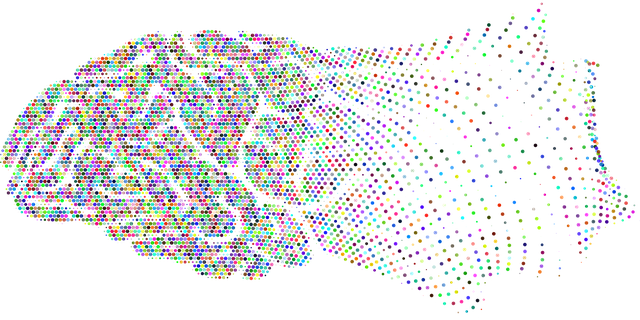Longmont Major Life Transitions Therapy leverages diverse data sources like social media and wearable devices for holistic mental health analysis, enabling tailored interventions like anxiety relief strategies and engaging podcast content. Effective data preparation ensures accurate trend identification, empowering therapists to refine treatment plans based on insights from pre- and post-therapy assessments, such as the effectiveness of mindfulness meditation. This approach, powered by advanced analytics and AI, enhances therapy outcomes by providing deeper client understanding, improving access to care, and strengthening patient-therapist relationships.
Mental health data analysis is transforming the way we understand and treat psychological conditions. This article explores the power of data in improving patient care, using Longmont Major Life Transitions Therapy as a case study. We delve into understanding the collection and preparation of mental health data, analyzing key outcomes, and interpreting findings to personalize treatment strategies. Additionally, we discuss how data-driven insights can enhance care and highlight future directions for this evolving field.
- Understanding Mental Health Data: Collection and Preparation
- Analyzing Longmont Major Life Transitions Therapy Outcomes
- Interpreting Findings for Personalized Treatment Strategies
- Enhancing Care with Data-Driven Insights and Future Directions
Understanding Mental Health Data: Collection and Preparation

Understanding Mental Health Data begins with recognizing that data collection goes beyond simple survey responses and medical records. It encompasses a diverse range of sources, from social media interactions to wearable health devices, offering insights into individuals’ emotional states and behaviors. In the context of Longmont Major Life Transitions Therapy, this data can provide a holistic view of patients’ mental health journeys, particularly when integrated with self-care routine development for better mental health.
Effective data preparation involves cleaning, normalizing, and organizing these varied inputs to ensure accuracy and consistency. This process is crucial for extracting meaningful trends and patterns, enabling professionals to tailor interventions like anxiety relief strategies and even produce engaging mental wellness podcast series content. By carefully navigating this initial step, healthcare providers can gain valuable insights into patients’ lives, leading to more effective treatment plans and improved outcomes.
Analyzing Longmont Major Life Transitions Therapy Outcomes

Analyzing Longmont Major Life Transitions Therapy Outcomes provides valuable insights into understanding the effectiveness of therapeutic interventions for significant life changes. By meticulously examining data from this specific therapy, researchers and practitioners can gain crucial knowledge about what strategies and techniques are most beneficial for individuals navigating major transitions. This involves assessing various outcomes such as improved emotional well-being promotion techniques, enhanced mood management skills, and overall life satisfaction.
The process often includes comparing pre- and post-therapy assessments to measure growth in areas like resilience and coping mechanisms. For instance, studies have shown that incorporating mindfulness meditation into Longmont Major Life Transitions Therapy can significantly reduce stress and anxiety, leading to better adjusted individuals capable of managing their emotions more effectively. Such analyses are essential for refining therapeutic approaches, ensuring optimal support for those undergoing life-altering events.
Interpreting Findings for Personalized Treatment Strategies

When analyzing mental health data, particularly in the context of Longmont Major Life Transitions Therapy, interpreting findings is a critical step in tailoring treatment strategies for individual clients. This involves identifying patterns and trends within the data that can shed light on specific challenges and strengths each person brings to therapy. For instance, through careful analysis, therapists can pinpoint periods of heightened stress or anxiety, which may be linked to significant life changes. By understanding these triggers, they can develop personalized interventions aimed at Anxiety Relief and Stress Reduction Methods.
Moreover, data interpretation allows for the design of Confidence Boosting techniques tailored to individual needs. For example, if the analysis reveals a consistent correlation between certain coping mechanisms and improved well-being, therapists can incorporate these strategies into treatment plans. This ensures that each client receives a customized approach, enhancing the effectiveness of Longmont Major Life Transitions Therapy and potentially leading to more positive outcomes.
Enhancing Care with Data-Driven Insights and Future Directions

Incorporating data analysis into mental health care has immense potential to enhance therapeutic outcomes, especially for complex cases involving Longmont Major Life Transitions Therapy. By leveraging data-driven insights, therapists can gain a deeper understanding of patients’ behaviors, thought patterns, and emotional triggers, enabling them to tailor interventions more effectively. Advanced analytics can identify underlying trends and correlations that may not be immediately apparent, providing valuable guidance in Crisis Intervention and facilitating the development of personalized treatment plans.
Looking ahead, the future of mental health data analysis holds promising possibilities for improving access to care and enhancing patient outcomes. Integration of artificial intelligence (AI) and machine learning algorithms could streamline data collection and interpretation, making it easier to identify at-risk individuals and provide timely interventions. Furthermore, focusing on Communication Strategies within data-driven approaches can foster stronger patient-therapist relationships, boost client confidence, and ultimately lead to more successful treatment journeys in Longmont Major Life Transitions Therapy settings.
Mental health data analysis is a powerful tool that can significantly improve therapeutic outcomes, particularly in Longmont Major Life Transitions Therapy. By understanding and interpreting complex datasets, healthcare professionals can develop personalized treatment strategies that cater to individual needs. The insights derived from this process not only enhance the effectiveness of therapy but also open up new avenues for improving mental health care in the future. This data-driven approach is crucial in optimizing Longmont Major Life Transitions Therapy and ensuring better outcomes for those seeking support.














